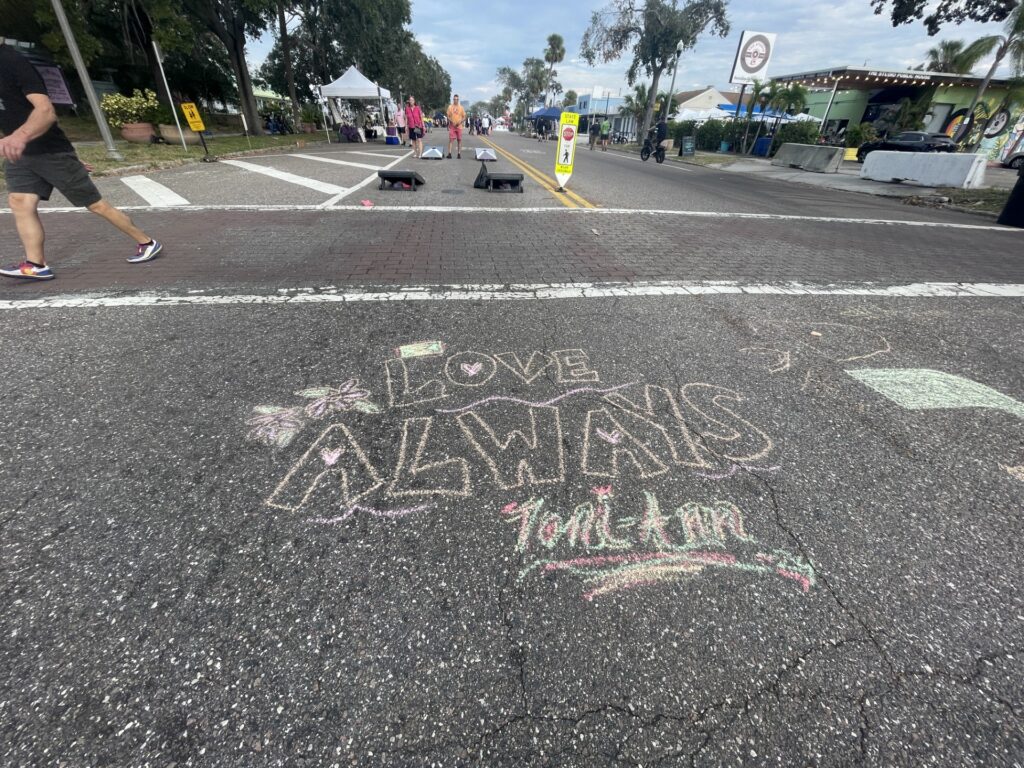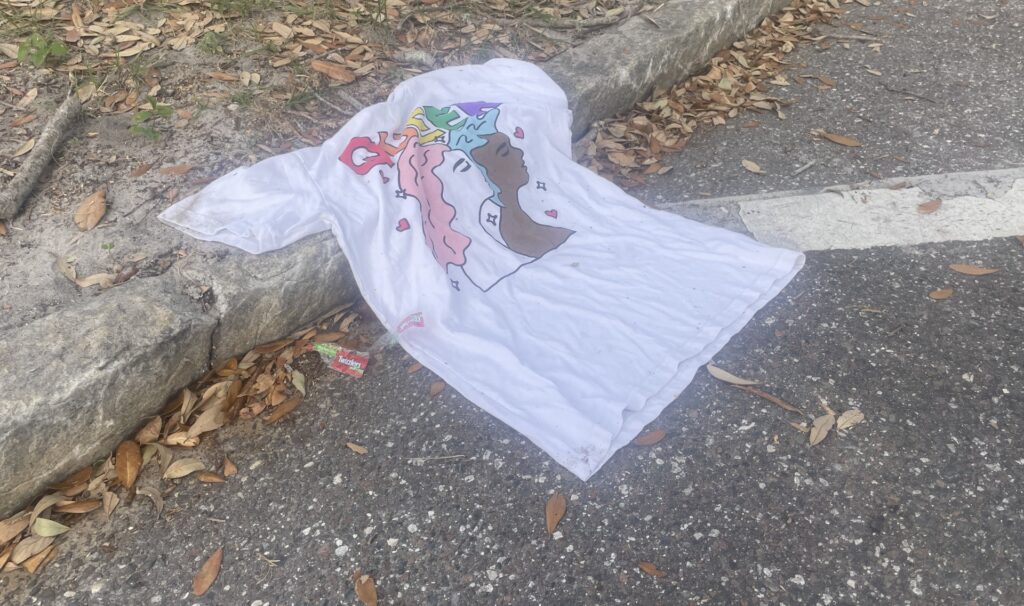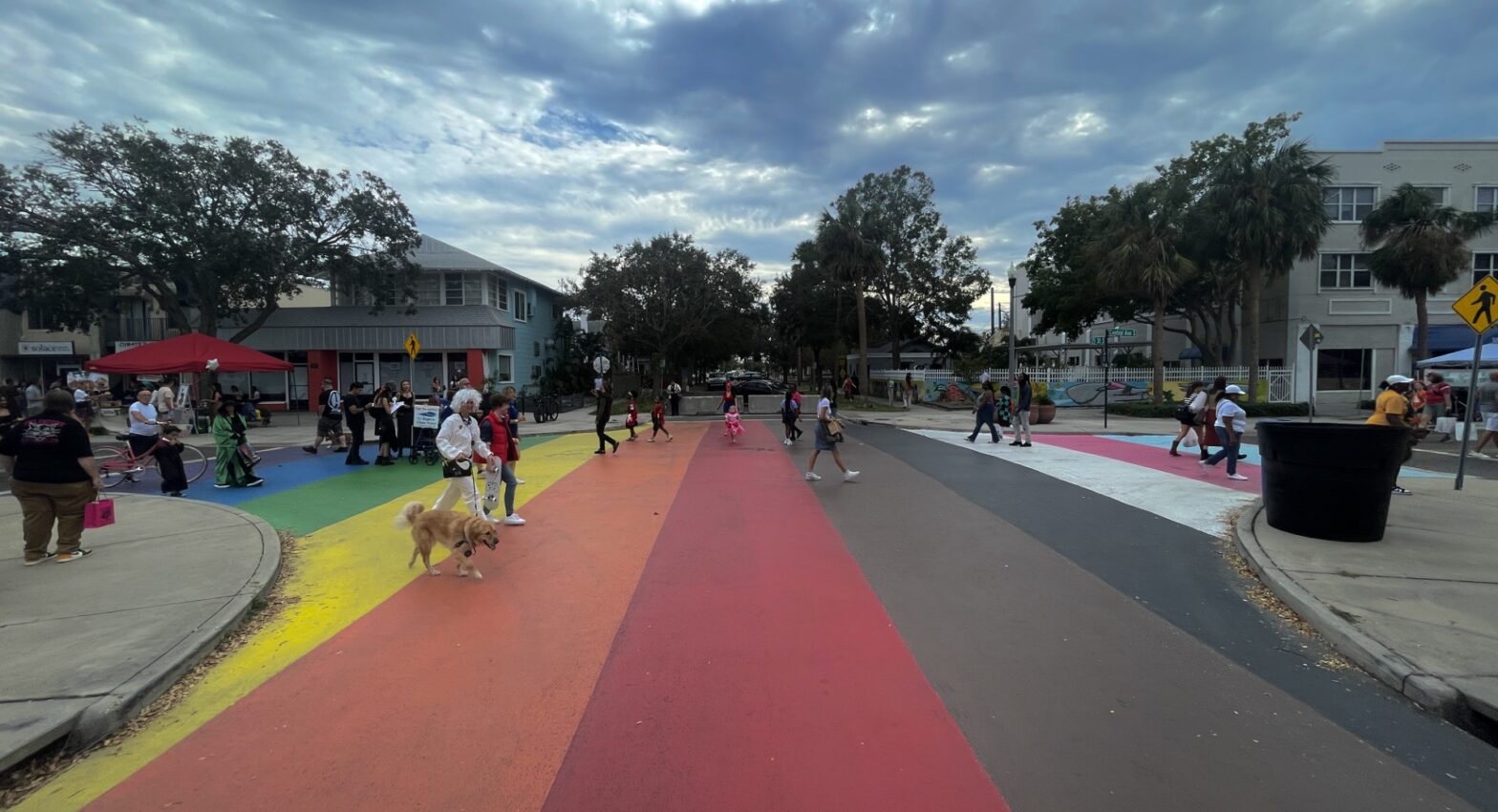By Skyla Rogers
Florida’s largest pride organization, St. Pete Pride, held its fourth annual FrankenPride event Oct. 27 from 12-5 p.m. on the 2800 through 3100 blocks of Central Avenue, creating a safe environment for all ages and identities.
Founded in 2003 following the abrupt shutdown of Tampa Bay’s pride event, St. Pete Pride works year-round to promote education, self-expression and a safe community for queer individuals
In recent years, Florida’s policy regarding the LGBTQ+ community has made headlines for the increasing restrictions on speech within classrooms (HB 1069), medical freedoms (SB 254) and more.
However, the city of St. Petersburg has been dubbed a success story through the Human Rights Campaign 2023 Municipal Equality Index, which examines how inclusive municipal laws, policies and services are for LGBTQ+ people who live and work there. Despite Florida’s state policies, St. Petersburg earned a perfect score, making it one of the most inclusive cities in the state for LGBTQ+ residents and visitors.
The president of St. Pete Pride, Byron Green-Calisch, said the organization’s goal is to promote a safe community while uplifting the individuals in it.
“We encourage people to express themselves in ways that makes sense for them at all of our events,” Green-Calisch said.
Many of St. Pete Pride’s events are geared toward education, focusing on exposing people to the culture of queer communities, he said.
“It’s hiding the vegetables in the sauce,” Green-Calisch said. “In how we push our mission of educating people and creating a better space where they can be their true authentic selves.”

Green-Calisch also emphasized the organization’s close relationship with local officials and police to make sure that “the organization uses [its] privilege to push back” when opportunities to engage in self-expression are in jeopardy.
One attendee, Carys Mullins, noted that events like FrankenPride, designed to be family-friendly, often encourage people to adjust their behavior to accommodate a younger audience.
“At LGBTQIA+ events specifically, adult gatherings tend to feature more political activism and sometimes more intense protests,” Mullins said. “Just like I think it’s important to have family-friendly concerts or parties, kids should be able to experience festivals and concerts that are mindful of them.”
According to Mullins, while there should still be spaces reserved for adults to have fun, exposing kids and teenagers to LGBTQ+ topics can help minors understand their own feelings.
“At the end of the day,” they said, “attempting to hide kids from the idea that princes can love other princes sometimes is simply silly.”
Former USF LGBTQ+ resource coordinator, Callen Jones, said they believe education plays a large role in continuing to build a more inclusive St. Petersburg.
“Pride and LGBTQ+ inclusion is a simple conversation about respecting people for who they are even when that is different than who you are,” Jones said, “[and] that has a place for all children and families.”

Green-Calisch explained that from the perspective of the organization, most resistance he has seen comes from outside queer communities due to large amounts of misinformation.
According to researchers at the University of California, Los Angeles, only 5.4% of adults in Florida are estimated to identify as a part of the LGBTQ+ community, yet 22.5% of hate crimes are targeted at queer people, according to the U.S. Department of Justice.
Despite the statistics, when asked if he believed the city was becoming more progressive, Green-Calisch said he has witnessed the city face challenges and its people rise to meet them.
While Green-Calisch sees the city as an ally in “maintaining safety while still celebrating difference,” Mullins expressed concern about the future safety of the LGBTQ+ community in St. Petersburg after seeing Florida’s recent political trends.
“I know several people who’ve left the Tampa Bay and St. Pete area for other states due to the new discriminatory laws,” Mullins said. “So, while the city feels safe and inclusive now, I worry about its future as well as the future of the whole state.”
Mullins’ concerns reflect real challenges, they said. In 2023, Governor Ron DeSantis signed HB 1069, a bill that restricts discussions on sexual orientation and gender identity in elementary and middle schools. This is just one of several recent measures that limit LGBTQ+ rights and education in Florida.
“We have opportunities to show [kids] that it gets better than what you’re currently experiencing,” Green-Calisch said. “So that we can turn queer youths into queer adults.”
Green-Calisch alluded to the growing suicide rate of children who identify with the LGBTQ+ community compared to their straight peers. According to The Trevor Project, LGBTQ+ youth are four times more likely to attempt suicide than others their age.
“Pride means being unafraid to be yourself,” Mullins said. “It means having pride in your community and supporting and empowering your neighbors. I think pride can teach kids to be confident and help them feel safe being their authentic selves, rather than stressing about the pressure to fit into an ever-shrinking box of arbitrary expectations.”

